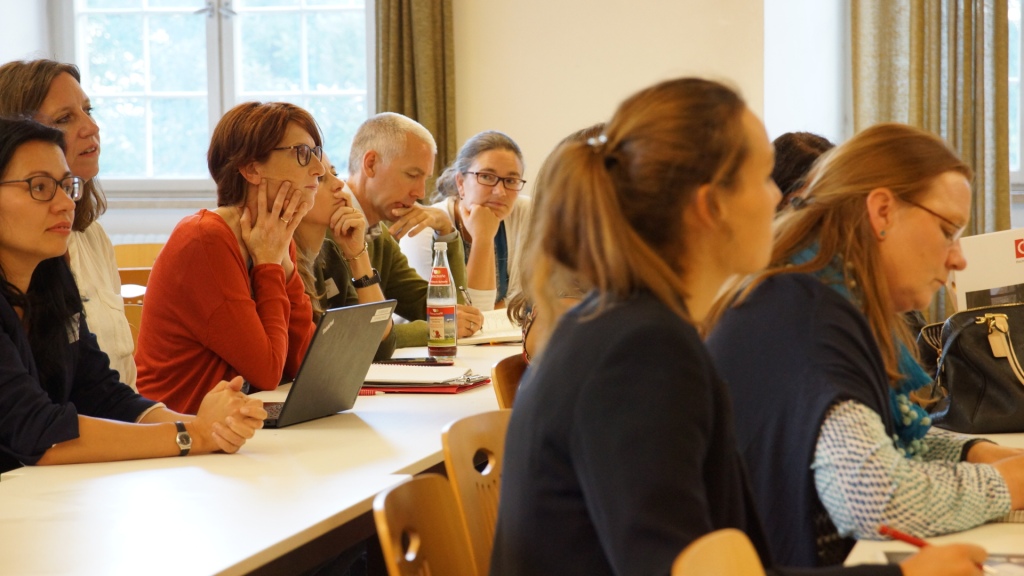The Academy for Continuing Education (AWW) of the Pädagogische Hochschule Weingarten (PH) organized a two-day international conference at the beginning of October about “Language and Integration on the job.” Approximately 30 participants from 8 countries (Germany, Austria, Italy, France, Norway, Sweden, Switzerland and Turkey) took part in it, they all working on a daily basis with migrants and their integration into the labour market, be it in business, from a scientific point of view or as language teachers.
“International cooperation is needed when it comes to integration,” said Rolf Ackermann, from Baden-Württemberg‘s Ministry of Education, Culture and Sport. “With regard to the world of work, migrants need a completely different setting for learning.” The aim is to do everything possible to help them reach step by step the linguistic B level (CEFR) with a starting point on the A one. In this sense, language training is the key to success for both social and professional life.
According to the PH, the integration of migrants into the working life is being researched by academics in many ways and is being put into practice by various institutions. In this process, all stakeholders will encounter obstacles that need to be addressed. Above all, professional and technical languages are a great challenge for people. “The aim of this symposium is to bring together the different actors in this field so that they can learn from each other,” said Dr. Sarah Lukas, head for FIER at PH.
Petra Wilhelm, head of the regional vocational school for the hotel and catering industry in Tettnang, explained that, due to the lack of skilled workers, training companies do not actually pay attention to the language level that the trainees actually need.“ The consequence is that they often do not survive the first year of apprenticeship. In general, however, we should not only demand something from the companies, but also approach them. This is what the FIER project does,” she praised.
During the two-day conference, the connection between language and professional integration was examined from different perspectives with lectures and workshops. Topics ranged from the integration of Syrian refugees and migrants in the hotel and catering industries to the integration of refugee teachers into teacher training. The question of whether dialect modules may be included in a German course was also raised. Finally, the event concluded with a panel discussion with nine participants from science and practice. All speakers agreed that, in the future, there will be a need for even more flexibility and fitting accuracy in order to facilitate integration processes.









